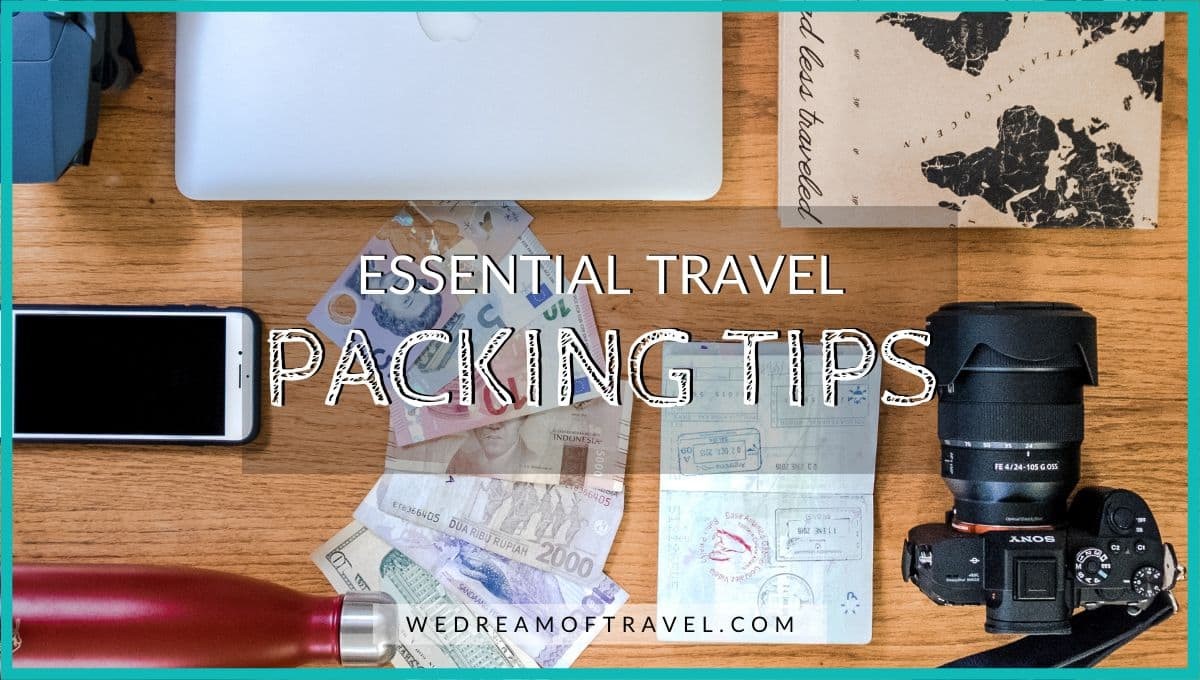
Embarking on a journey as an international student is both exciting and nerve-wracking. From experiencing a new culture to pursuing academic goals, there’s much to anticipate. However, one of the first challenges is preparing for the trip itself. This article aims to provide international students with a comprehensive guide to stress-free travel preparation, focusing on efficient packing and essential planning tips.
- Pre-Departure Research
Before you even start packing, conduct a thorough research about your destination. Understand the local weather, culture, customs, and any specific guidelines for international students. This knowledge will guide your packing choices and help you adapt more seamlessly to your new environment.
- Packing Essentials
When it comes to packing, remember: less is often more. Focus on essentials and versatile clothing items. Here’s a checklist to consider:
Clothing: Pack clothes suitable for different weather conditions. Choose mix-and-match pieces that create multiple outfits. Toiletries: Carry travel-sized toiletries and consider purchasing the rest upon arrival to save space. Documents: Keep your passport, visa, acceptance letters, and important contacts in a secure, accessible folder. Electronics: Pack chargers, adapters, and any essential electronics like laptops or phones. Medications: If you have prescriptions, ensure you have an adequate supply for the duration of your stay.
- Carry-On Essentials
Your carry-on bag should include items you’ll need during the flight and immediate aftermath:
Travel Documents: Passport, boarding pass, and any necessary visas. Medications: Keep medications, a small first aid kit, and any essential medical information handy. Valuables: Keep valuables like laptops, cameras, and important documents in your carry-on. Entertainment: Bring books, headphones, or any other entertainment for the flight.
- Travel-Friendly Packing Tips
Roll, Don’t Fold: Rolling clothes can save space and reduce wrinkles. Use Packing Cubes: These help keep your luggage organized and make it easy to find what you need. Check Airline Regulations: Be aware of baggage weight and size limits to avoid surprises at the airport.
- Planning for Arrival
Airport Pickup: Arrange for transportation from the airport to your accommodation in advance. Local Currency: Have a small amount of local currency for initial expenses, and consider getting a travel card. Emergency Contacts: Save local emergency contacts and your country’s embassy details in your phone.
- Adaptation and Culture Shock
Be prepared for a period of adjustment. Culture shock is normal, and it takes time to settle into a new place. Stay open-minded, make new friends, and engage in local activities to ease the transition.
- Accommodation Preparation
Your accommodation will be your home away from home, so it’s important to prepare for it accordingly. Contact your accommodation provider before departure to confirm details such as check-in procedures, address, and any specific guidelines. Inquire whether bedding and linens are provided or if you need to bring your own. If you plan to do some cooking, find out if the accommodation has kitchen facilities and pack lightweight cooking essentials if needed. Being well-prepared for your living space can greatly contribute to your overall comfort and settling-in process.
8 Banking and Finances
Sorting out your finances before departure is essential for a smooth transition. Research local banks in your host country and the requirements for opening a bank account as an international student. Familiarize yourself with the locations of ATMs and currency exchange centers near your accommodation, so you can easily access funds when needed. Create a budget that outlines your expected expenses, including tuition fees, accommodation costs, food, transportation, and leisure activities. Having a clear understanding of your finances will help you manage your spending and ensure you have enough funds for your entire stay.
- Communication
Staying connected with family, friends, and your new acquaintances is crucial for a successful international experience. Research options for obtaining a local SIM card upon arrival. This will give you a local phone number and access to mobile data, making it easier to stay in touch. Download messaging apps that are commonly used in your host country to facilitate communication. These apps can be especially handy for connecting with fellow students, making plans, and staying updated on university announcements.
- 10. Social Integration
Feeling socially integrated can significantly enhance your study abroad journey. Attend any orientation sessions organized by your university. These sessions will provide valuable information about campus facilities, academic expectations, and student services. Engaging in extracurricular activities and joining clubs related to your interests is an excellent way to meet new people and make friends. Be open to interacting with both locals and fellow international students, as this will expose you to a diverse range of perspectives and experiences. Remember that social integration takes time, so be patient and proactive in seeking out opportunities to connect with others.
As you prepare for your journey as an international student, Choose the GOHRCS visa, and student visa program addressing these aspects of travel planning will contribute to a smoother transition and a more enjoyable experience overall. By taking care of your health, understanding your accommodation, managing your finances, staying connected, and actively engaging in your new community, you’ll be better equipped to make the most of your time abroad.

